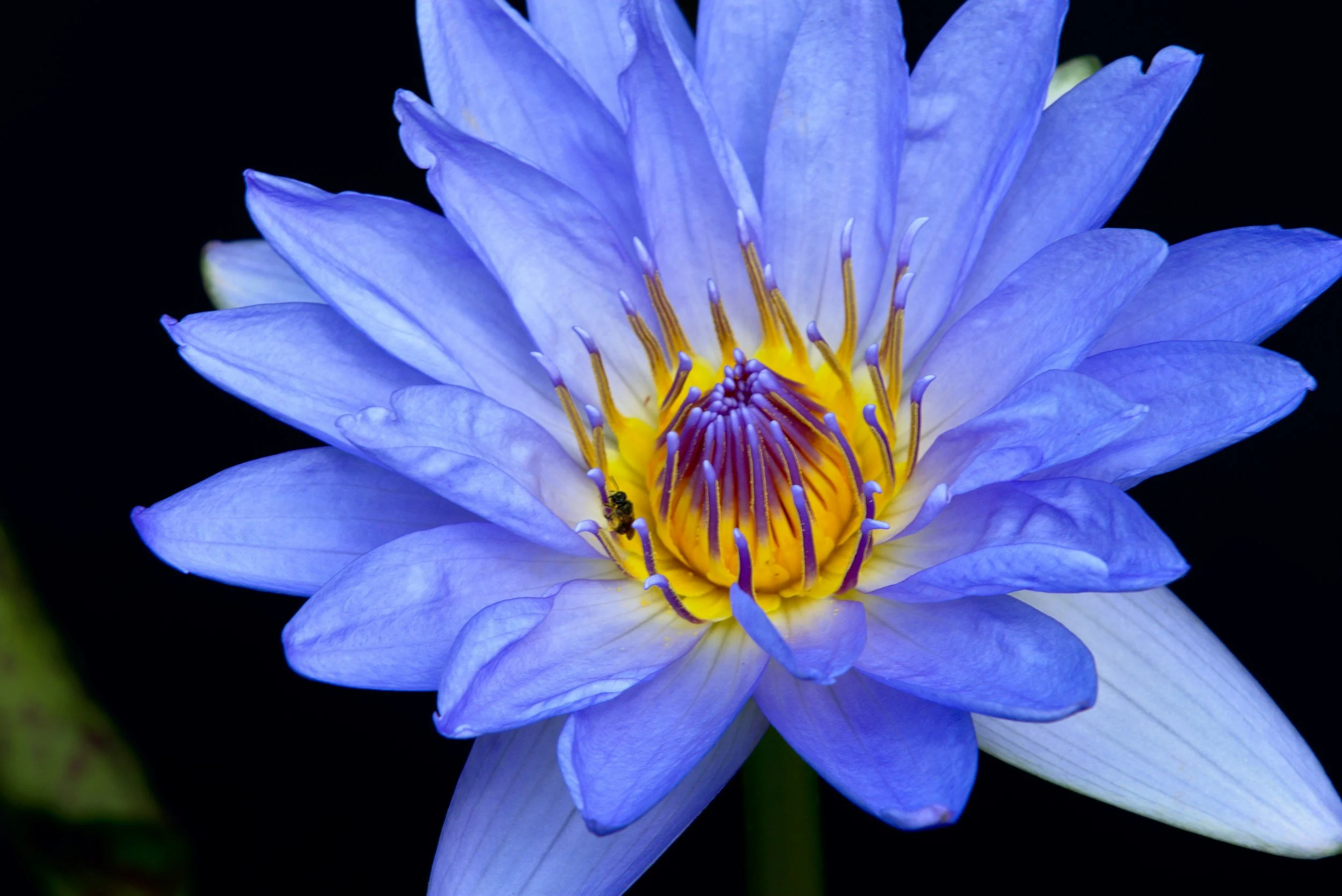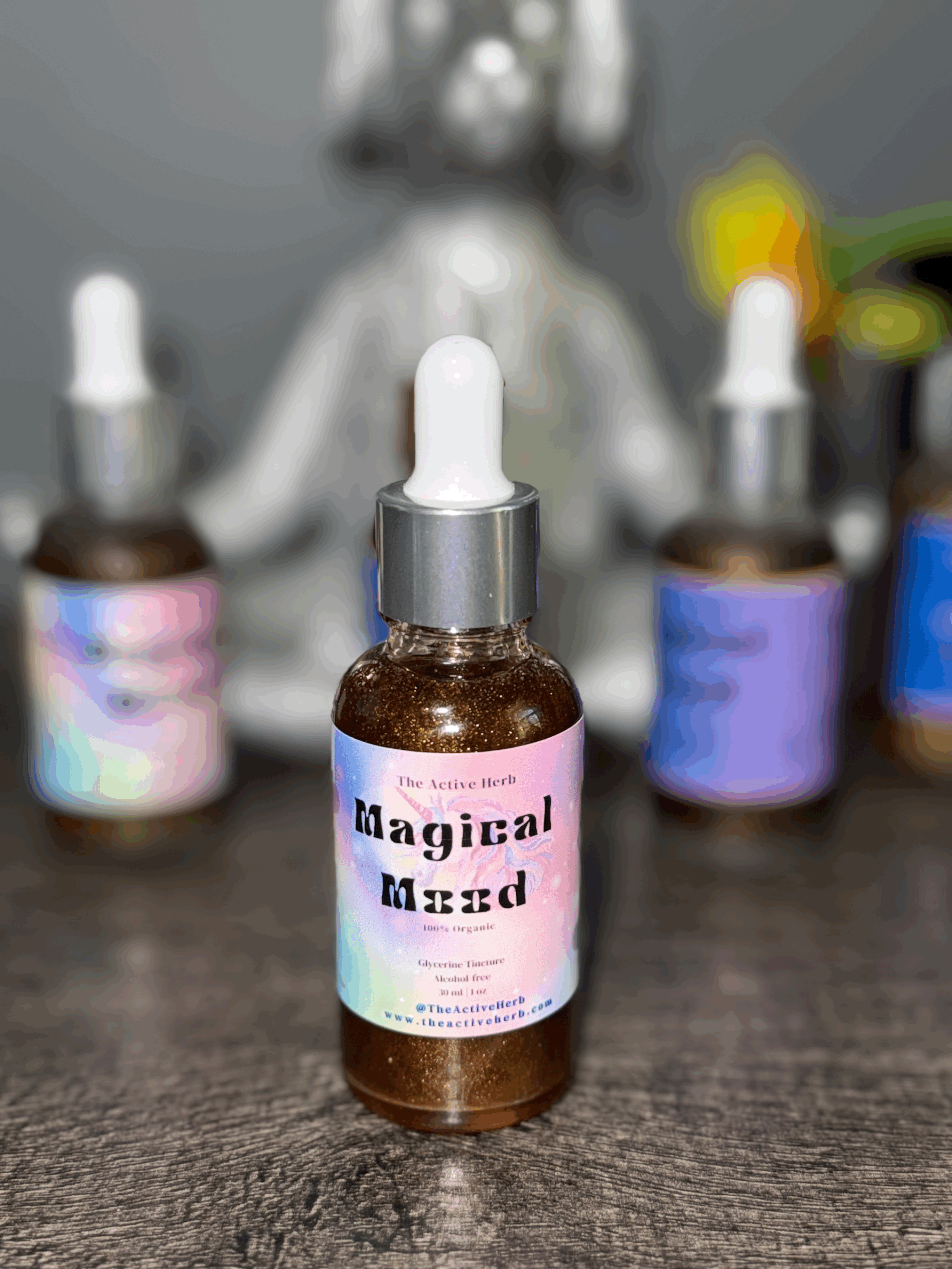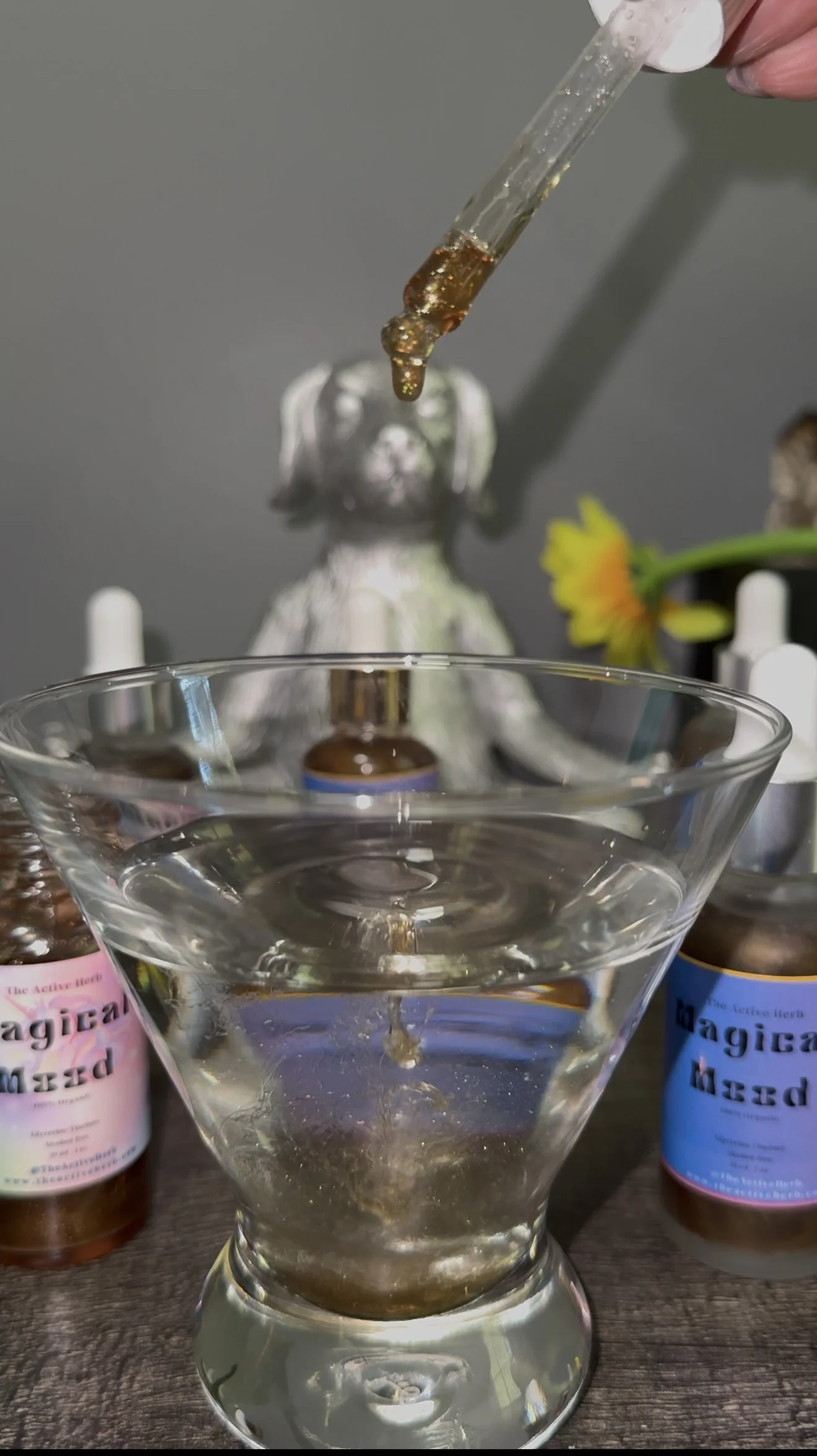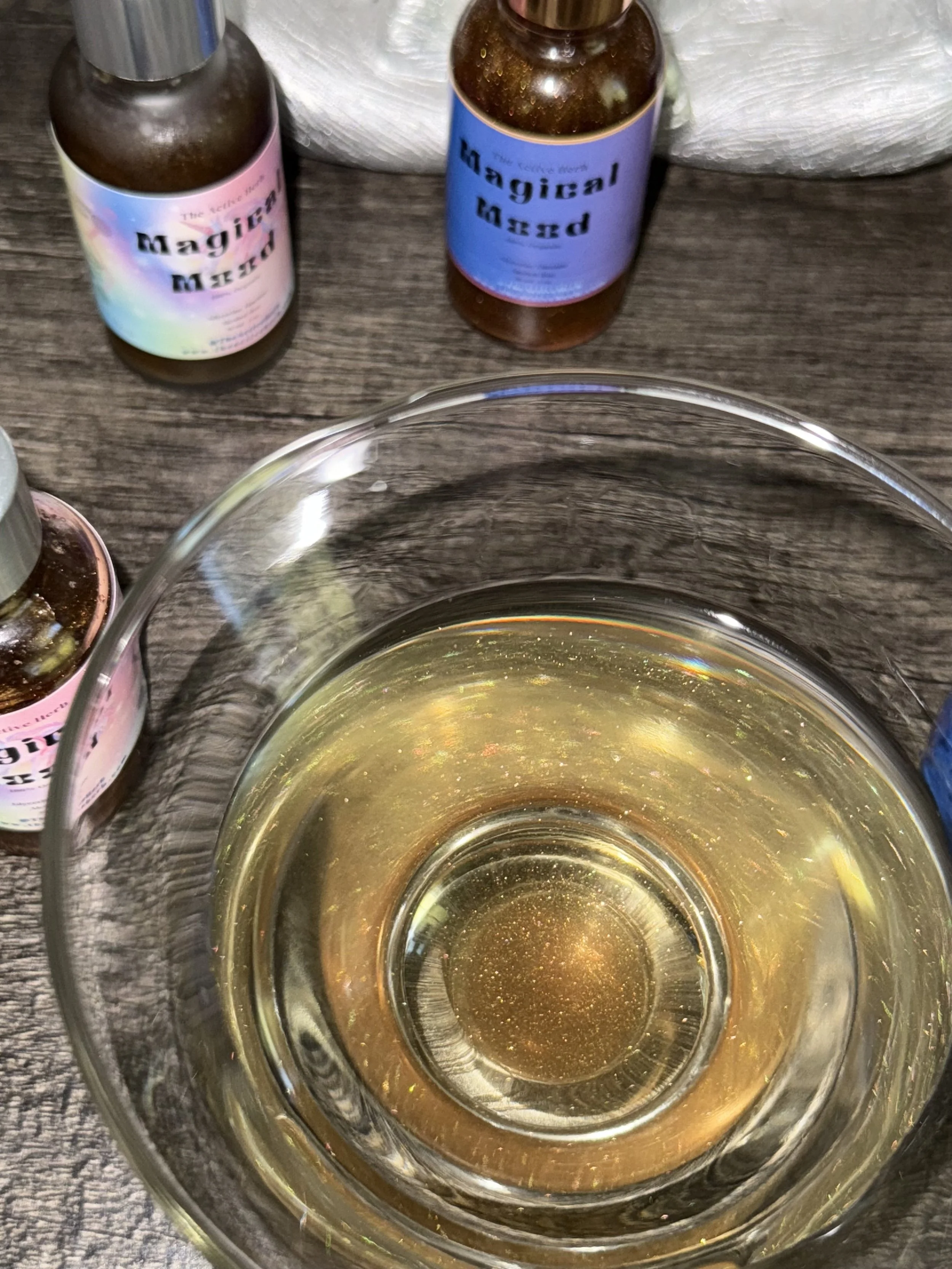
Magical Mood Drops
Natural ingredients to help you feel calm and happy every day.

Scientist Formulated
⋆
Scientist Formulated ⋆

How the botanicals may work
biochemical lens
-

Skullcap (Scutellaria lateriflora) — GABA system support
Key flavonoids (baicalin, baicalein, wogonin) bind to the benzodiazepine site on GABAAA receptors, enhancing inhibitory signaling. In preclinical and receptor-binding studies, this GABAergic modulation is associated with anxiolytic-like effects and calmer arousal states, which can coexist with low mood.
-

Reishi (Ganoderma lucidum) — stress-inflammation-neurotrophic axis
Reishi polysaccharides and triterpenes have been reported to: (1) modulate HPA-axis stress signaling, (2) reduce neuroinflammation, and (3) upregulate neurotrophic pathways (e.g., BDNF/CREB) in animal and cellular models, all trends linked to improved affect and stress resilience in preclinical depression paradigms.
-

Blue Lotus (Nymphaea caerulea) — aporphine alkaloids & monoamines
Blue lotus has been reported to contain aporphine-class alkaloids (e.g., apomorphine; sometimes nuciferine is detected), a scaffold known to interact with dopamine and serotonin receptors. Such interactions could influence reward/affect circuits; however, alkaloid content varies across products and robust human data are limited.
New Product Launch
⋆
New Product Launch ⋆
Magical Mood
Drops

The Science……….
Network effects (the blend)
GABAergic tone ↑ (skullcap) may help settle hyperarousal. PubMed
Neuroinflammation ↓ & HPA modulation (reishi) address stress-linked biology that often accompanies low mood. Maastricht University
Monoaminergic nudging (blue lotus aporphines) may complement the above via dopaminergic/serotonergic receptor activity, though consistency of actives is variable. PMC
Neurotrophic signaling ↑ (baicalin/BDNF-CREB pathways; also seen with reishi) supports synaptic plasticity in preclinical models. Nature
Good to know
↓
Evidence cited here is primarily preclinical (cell/animal) or mechanistic. These drops are not a treatment for depression. If you’re experiencing persistent low mood, seek guidance from a qualified professional.






